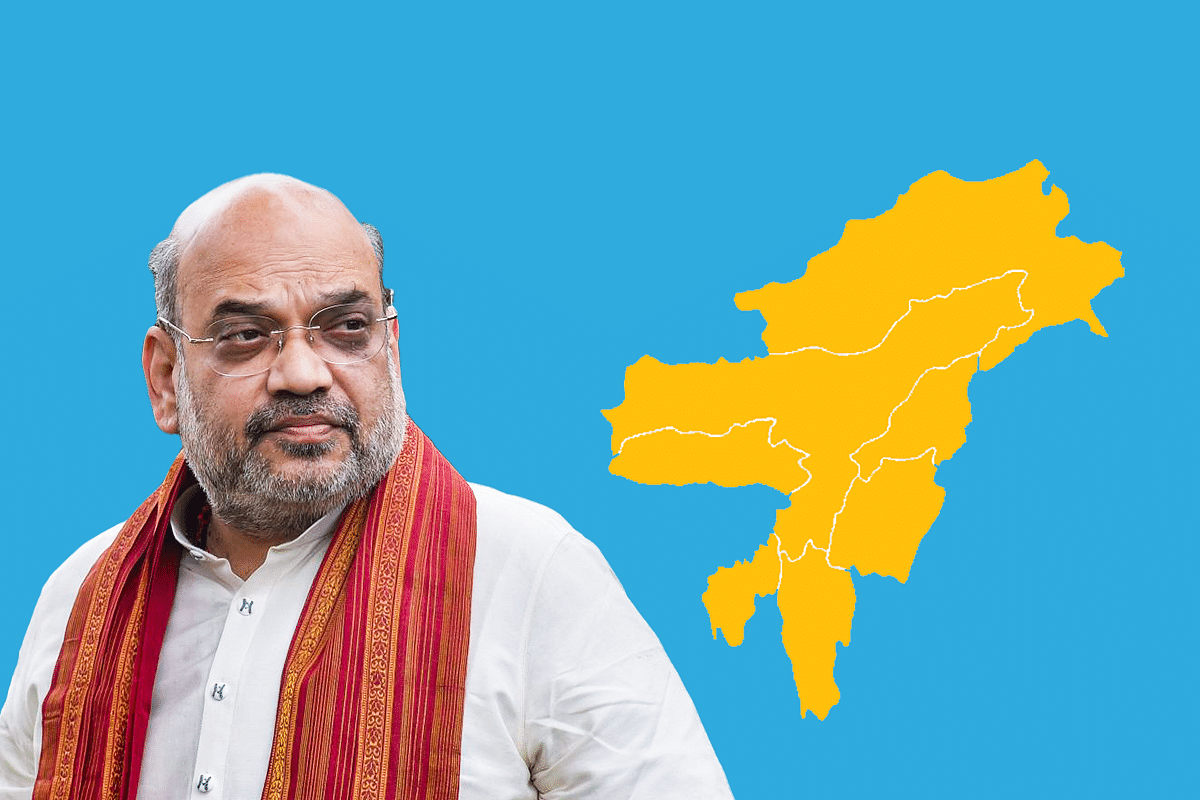Politics
Uniform Civil Code Push: BJP Faces Opposition From North East Allies
- The opposition primarily arises from the fact that these parties are based in tribal-majority states, which have special provisions for customary laws.

Many tribal bodies and associations have expressed their opposition to the Uniform Civil Code.
The Bharatiya Janata Party (BJP), as it tries to press for Uniform Civil Code (UCC) has found it increasingly evident that it will face difficulty in convincing it's allies in the Northeast, who have stated their strong reservations on it.
The parties, such as the National Democratic Progressive Party (NDPP) leading the coalition in Nagaland, the National People's Party (NPP) leading the alliance in Meghalaya, and the Mizo National Front (MNF) — not partnered with the BJP in Mizoram — but part of the larger National Democratic Alliance (NDA), are all against the UCC.
The opposition primarily arises from the fact that these parties are based in tribal-majority states, which have special provisions for customary laws.
Historically, there has been strident resistance to any threats against these customary practices.
Last month, the 22nd Law Commission sought suggestions on the UCC and despite BJP expressing its support for it, there has been significant disapproval from various quarters in Nagaland, where over 86 per cent of the population belongs to Scheduled Tribe (ST) communities.
Many tribal bodies and associations have expressed their opposition to the UCC, emphasising Article 371A of the Constitution, which protects Naga laws.
The article states: "No act of Parliament in respect of religious or social practices of the Nagas; Naga customary law and procedure; administration of civil and criminal justice involving decisions according to Naga customary law; ownership and transfer of land and its resources, shall apply to the state of Nagaland unless the Legislative Assembly of Nagaland by a resolution so decides."
The NDPP declared its opposition to the implementation of the UCC on Thursday (29 June), stating that it is a party "whose very ideology is to protect the rights, customs, and traditions of our people."
In an official statement, the party also counselled the government of Nagaland to seek its opinion on the matter in which, says the statement, "we do not waiver from our commitment to the Naga people”.
In its statement, the party further emphasised that the implementation of the UCC could derail the ongoing peace process in the state.
The statement indicated that the negotiations towards a Naga political solution are "at a critical juncture" and that the Naga people eagerly anticipate permanent peace through a final settlement.
It further stated that a new law would deeply impact the personal laws of the people and can “create further uncertainty and has the serious potential to threaten the peaceful environment”.
Additionally, the party highlighted that several sections in Naga society have yet to "completely integrate emotionally" with the Indian Union and still perceive the practices, cultures, and beliefs of the "mainland" as "strange and alien."
Conrad Sangma, the Chief Minister of Meghalaya and leader of the NPP, on Friday (30 June), expressed his party's belief that the UCC would contradict the idea of India's diversity.
He said, “From a basic concept point of view, we are a matrilineal society for example. That is what our strength has been, that is what our culture has been. That cannot be changed for us."
He further added, "As a political party, we realise that the entire North East, for that matter of fact, has a unique culture and unique ways of our society. Hence we would want that to remain and we would not want that to be touched.”
Last week, the Khasi Hills Autonomous District Council, an autonomous body under the Sixth Schedule of the Constitution, passed a resolution urging the union government to refrain from adopting the UCC.
They emphasised the importance of safeguarding customary practices of land ownership, the matrilineal system in Khasi society, and the culture of traditional heads.
Much before the current demand for UCC, the Mizoram government, led by MNF, took a firm stance against it.
In February, the state assembly passed a resolution opposing the UCC. Home Minister Lalchamliana, while introducing the resolution, referred to Article 371G of the Constitution, which provides similar protection to Mizo customary law and social practices, as Article 371A does for Nagaland.
Support Swarajya's 50 Ground Reports Project & Sponsor A Story
Every general election Swarajya does a 50 ground reports project.
Aimed only at serious readers and those who appreciate the nuances of political undercurrents, the project provides a sense of India's electoral landscape. As you know, these reports are produced after considerable investment of travel, time and effort on the ground.
This time too we've kicked off the project in style and have covered over 30 constituencies already. If you're someone who appreciates such work and have enjoyed our coverage please consider sponsoring a ground report for just Rs 2999 to Rs 19,999 - it goes a long way in helping us produce more quality reportage.
You can also back this project by becoming a subscriber for as little as Rs 999 - so do click on this links and choose a plan that suits you and back us.
Click below to contribute.
Latest